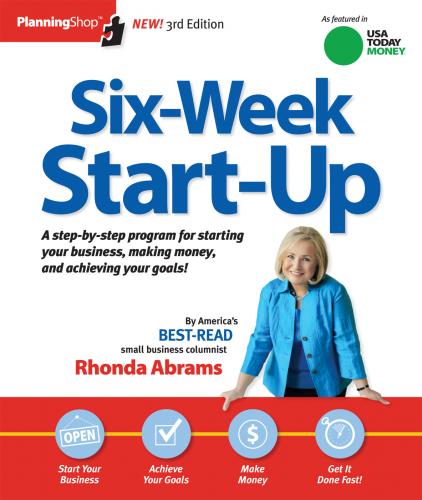QUESTIONS TO ASK
POTENTIAL PARTNERS
DISCUSSING PARTNERSHIP TERMS
Use this worksheet to determine with your partners the terms of your partnership. Then meet with a lawyer to draw up a formal partnership agreement.
| Ownership Division. Who owns what percent of the business? |
| Jobs/Responsibilities. What jobs and responsibilities does each partner have? Can partners work for any other company or do any other work on the side? |
| Decisions. How will general business decisions be made? What decisions does each partner have final authority on? Who has the final authority for decisions for the company as a whole? |
| Communication. How will you communicate on a regular basis? How will serious disputes be resolved? |
| Exit Strategy and Dissolution Agreement. What happens if one partner wants to leave the business or move? What if one partner wants to sell the company? What happens if a partner dies or becomes disabled? |
| Other: |
If you’re going into business with other people, even a spouse or friend, formalize your arrangement with a written partnership agreement. Take the time to work out as many details as you can. Be certain to include a way to buy each other (or each other’s heirs) out of the business. A messy “divorce” from a business partner is as difficult as a messy marital divorce—with potentially greater financial consequences. Drawing up an agreement now will help avoid difficulties if you later decide to go your separate ways.
Use the guide “Questions to Ask: Potential Partners” on page 19 to discuss the nature of your relationship. The worksheet “Discussing Partnership Terms” on page 20 outlines important issues that can later become part of a formal agreement, drawn up with the help of a lawyer.
You may have heard that it’s best to start a business using OPM—“Other People’s Money.” But don’t just rush out looking for investors. Choosing to get an investor is a big decision.
You are almost always tied to your investors for the life of your business. Remember, there usually isn’t any easy way out of a relationship with an investor; in fact, if you have to come to a parting of the ways, your investors may have more ability to get rid of you than you will have to get rid of them. So proceed carefully!
Don’t forget—investors legally own a piece of your business, and they have certain rights under the law. Not only are they entitled to a share of your profits but they have other rights as well. They are also entitled to a share of your losses for tax purposes. The involvement of investors makes dealing with legal issues, decision-making, taxes, and many other matters more complicated and expensive. And if things go wrong, having investors can make everything a lot messier.
Check It Out
To start your search for funding from an angel investor, check out the Angel Capital Association (www.angelcapitalassociation.com) or The Angels’ Forum (www.angelsforum.com). The National Venture Capital Association (www.nvca.org) represents the venture capital industry in the U.S.
If you decide you absolutely need investors, make certain you spend as much time as possible getting to know any potential investor—after all, you’ll be tied to each other for a long time. It’s unlikely you can ask as many probing questions of a potential investor as you can a potential partner, because investors usually view the investment process as an examination of you—not the other way around. Nevertheless, find out if they’ve invested in other companies before. If so, speak to other entrepreneurs who’ve worked with them. “What are their financial and business motivations for investing? Are those goals a good fit with your own? How much control do they want in the business?
RED TAPE ALERT!
Even if you never use the word “partner,” if you and a friend decide to start selling used golf balls online together, in the eyes of the law you’ve become partners. The best way for things to stay friendly between partners is to have a clearly defined partnership agreement before you begin the company. Prepare a legally binding contract spelling out the terms of your partnership: who owns what percent, how decisions are made, what happens to the company if one or more of the partners wishes to leave, how and whether additional partners can be added, and so on. It is also advisable to work out a “Buy/Sell” agreement, so the terms of how and to whom a partner can leave or sell their interest in the business are clear. You may want provisions limiting their ability to sell their interest to others and, in the case of a partner’s death or disability, to have other partners buy out their heirs at a fair price—you don’t necessarily want to wind up running the business with your partners’ spouse or
